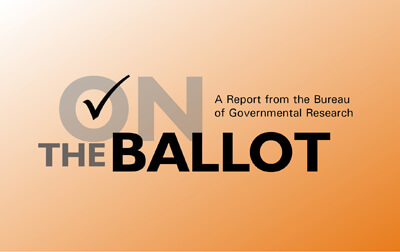
Tax proposal for New Orleans senior citizens is missing crucial details
By The Times-Picayune Editorial Board
Source: NOLA.com | The Times-Picayune
March 27, 2019
The Times-Picayune Editorial Board makes the following recommendation for Saturday’s election (March 30).
ORLEANS PARISH
Elderly Services Tax Proposition
To levy a 2-mill property tax for five years for services for senior citizens
No
It’s clear that New Orleans should do more to provide services to senior citizens in the city. The Bureau of Governmental Research points out that the 74,000 city residents 60 and older “have greater income instability, are more likely to be disabled and are more likely to live alone” than their peers in other cities.
The Council on Aging says it has a waiting list of 1,200 people who need Meals on Wheels. No one in New Orleans wants an elderly neighbor to go hungry, and the city should help ensure that they don’t.
But this tax proposal is flawed.
Mayor LaToya Cantrell asked the City Council last fall not to put the measure on the ballot because she wants to take a more holistic approach to services, including early childhood and mental health. BGR recommends voting against the tax because of a lack of details on the city’s priorities for the money and how it would be spent.
The tax proposition doesn’t designate where the money would go. The City Council has said it will come back with a statute to define how the money can be spent, but voters should know more of those details before the election. The city currently provides $1.4 million per year for senior services through the Council on Aging, and the expectation is that the nonprofit would receive the additional money.
The Council on Aging provides services that include midday meals at senior centers, a homemakers’ program to help seniors do household chores and transportation, among others. Their homemakers’ program has a waiting list of 500 people, according to a presentation made to the council last fall. Those are important services.
But this tax would greatly increase the public’s investment, adding an estimated $6.6 million per year, without a broad discussion of the needs or priorities for senior services. “There is a wide range of potential uses of the millage revenue, from essential daily care to social activities and senior information fairs. Without a more complete picture of the City Council’s intent, BGR cannot determine whether the tax is appropriately sized,” BGR said in its analysis of the proposal. The tax would vault New Orleans over Jefferson and St. Tammany parishes in spending and would more than double what Jefferson Parish spends per elderly resident.
The City Council also “hasn’t assessed the proposed tax in the context of other municipal revenue needs,” BGR said. “The City administration, which opposes the new tax, points to a broader range of public health needs, including those of families, youth and senior citizens. It plans to comprehensively address these needs with a millage proposal after 2019.”
If the tax passes, the owner of $359,000 house — the citywide average — with a homestead exemption would pay $56.80 more in property taxes annually. A home valued at $200,000 with a homestead exemption would pay $25 more per year.
That doesn’t sound like much, but it should be viewed as part of the total cost of living in the city and the other needs for tax dollars. If this tax is added, will voters be willing to pay more for other essential services like drainage, for example? And what is the best way to pay for social services from birth to old age for New Orleanians? That is what the mayor was trying to get the council to consider.
Voters should say no to this tax and let Mayor Cantrell and City Council start over.
Fair Use Notice
This site occasionally reprints copyrighted material, the use of which has not always been specifically authorized by the copyright owner. We make such material available in our efforts to advance understanding of issues and to highlight the accomplishments of our affiliates. We believe this constitutes a “fair use” of any such copyrighted material as provided for in section 107 of the US Copyright Law. In accordance with Title 17 U.S.C. Section 107, the material on this site is available without profit. For more information go to: US CODE: Title 17,107. Limitations on exclusive rights: Fair use. If you wish to use copyrighted material from this site for purposes of your own that go beyond “fair use,” you must obtain permission from the copyright owner.
